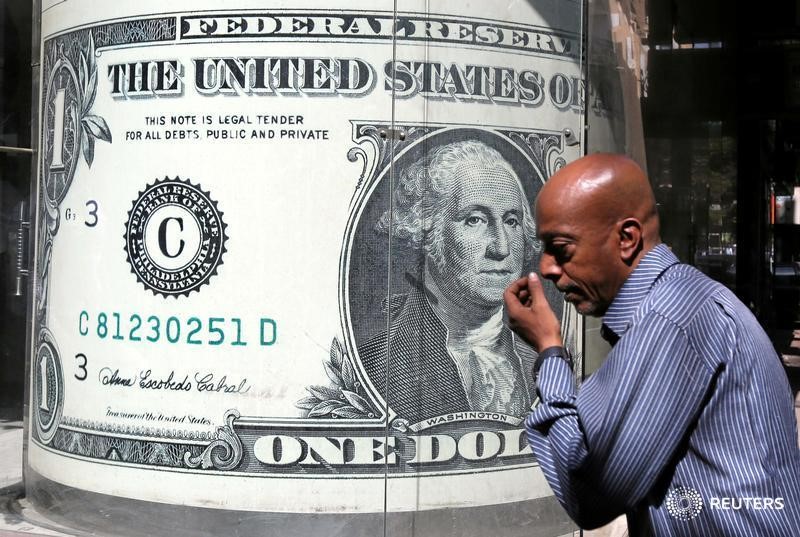Investing.com - The dollar rallied against the other major currencies on Monday after Hillary Clinton got a late boost in the U.S. presidential election after the FBI confirmed that it won’t bring charges over emails related to her personal email server.
The U.S. dollar index, which measures the greenback’s strength against a trade-weighted basket of six major currencies, jumped 0.8% to 97.72, the highest since November 2.
The dollar strengthened against the euro and the pound, with EUR/USD down 0.77% at 1.1053 and GBP/USD losing 0.97% to trade at 1.2394.
The yen, which investors often buy during times of market uncertainty, was sharply lower, with USD/JPY jumping 1.36% to 104.48.
The traditional safe haven Swiss franc was also sharply lower, with USD/CHF advancing 1.03% to 0.9782.
The Mexican peso surged higher against the dollar, with USD/MXN dropping 2.11% to 18.63.
The Mexican currency has been sensitive to developments in the election amid fears that a victory for Republican candidate Donald Trump could damage the country’s economy.
Clinton’s campaign lost momentum last week after the FBI said it was reviewing more emails related to her private email use while she was secretary of state.
A victory for Clinton in Tuesday’s election is expected to be less disruptive for financial markets than a win for Trump and would strengthen the case for the Federal Reserve to raise interest rates in December.
Data on Friday showed that the U.S. economy continued to create jobs at a steady pace in October, although at a slightly slower rate than forecast.
The U.S. economy added 161,000 jobs in October from the prior month, the Labor Department said.
Investors are currently pricing in a 71.5% chance of a rate hike at the Fed's December meeting; according to federal funds futures tracked Investing.com's Fed Rate Monitor Tool.
Expectations of higher rates tend to boost the dollar, as higher borrowing costs make the currency more attractive to yield seeking investors.
But analysts have warned that the U.S. central bank could hold off on hiking rates if the election outcome sparks market volatility.
